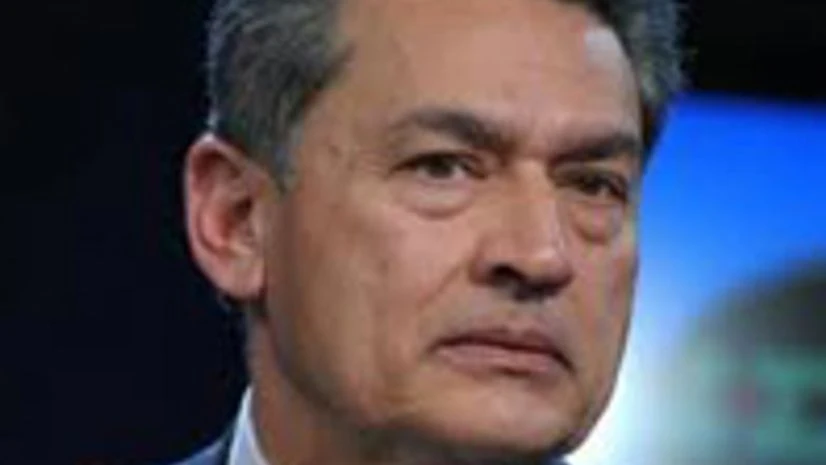Last May, a jury convicted Gupta, 64, of leaking boardroom secrets about Goldman to the hedge fund manager Raj Rajaratnam. The presiding judge, Jed S Rakoff, sentenced Gupta to two years in prison. He is free on bail while he is appealing the conviction.
Goldman had sought $6.9 million in reimbursement from Gupta, which represented the total amount that the bank had paid to its primary outside counsel at the law firm Sullivan & Cromwell for an internal investigation and other legal expenses. The bank filed the claim based on the Mandatory Victims Restitution Act, a law that allows corporations to get reimbursed as a victim of an insider trading crime by a rogue employee.
After reviewing the firm’s 542 pages of billing records related to the case, Judge Rakoff said that Gupta raised no “colourable challenge to the veracity of the records”. He cut the bill by 10 per cent, he said, because he noted that there were some extraneous entries.
“On a few occasions,” Rakoff wrote, “the number of attorneys staffed on a task — while perhaps perfectly appropriate on the assumption that Goldman Sachs wished to spare no expense on a matter of great importance to it — exceeded what was reasonably necessary” under the statute. Michael Duvally, a Goldman spokesman, said the bank was pleased the court ordered Gupta to pay it restitution. Gary P Naftalis, a lawyer for Gupta, declined to comment.
Goldman is not the only bank that has asked to get paid back because of an employee’s insider trading crimes. Last March, a federal judge ordered that Joseph F Skowron, a former Morgan Stanley hedge fund manager, pay the bank $10.2 million in legal fees and a portion of his past compensation. Skowron is appealing the ruling.
The money that Gupta now has to pay Goldman is separate from the cost of Gupta’s legal defence, which has thus far exceeded more than $30 million. That legal tab has been paid for by Goldman because the bank’s bylaws require it to pay the legal fees of its top officers and directors. But under a deal reached before his trial, Gupta agreed that if he was found guilty of insider trading, he would reimburse the bank for the legal fees advanced to him. Goldman must continue to pay his bills until the resolution of his appeal.
Gupta should be able to afford the $6.2 million payment to Goldman. In April 2008, he had a net worth of about $84 million, according to testimony during the trial. But the case also revealed that his assets took a major hit during the financial crisis. For Goldman, Gupta’s case was a huge distraction.
Among other hassles, the bank’s CEO, Lloyd C Blankfein, was forced to testify over three days in Federal District Court in Manhattan, reviewing for a jury the details and sanctity of Goldman’s boardroom discussions.
© 2013 The New York Times News Service
TOTAL RECALL
A timeline of Rajat Gupta’s rise and fall
- 1948 Born in Calcutta (now Kolkata). Enrols at Modern School, Delhi. Orphaned at 18
- 1966 Among top-20 at the IIT-JEE
- 1971 Graduates in mechanical engineering from IIT-Delhi. Turns down ITC job offer. Joins Harvard Business School on scholarship
- 1973 Becomes a Baker Scholar in his class, a distinction of top 5% students. Hired by McKinsey in New York
- 1980 Becomes partner in the consulting firm
- 1994 Becomes head of McKinsey.
- During his three terms at the helm, the firm's revenue increases to $3.4 billion from $1.2 billion
- 2007 Retires. Travels to India to seek investments for New Silk Route Partners and others
-
2008
April: His net worth is $84.1 million
July: FBI agents listen in on a Gupta-Raj Rajaratnam call, in which Gupta discusses Goldman Sachs business -
2012
June 16: Found guilty of insider trading charges, including leaking tips such as a Buffet investment in Goldman
October 24: Sentenced to 2 years in prison; asked to pay
December 6: A federal appeals court allows him to remain free on bail while he challenges his insider-trading conviction -
2013
January 23: Gupta’s lawyers urge a federal appeals court to reverse his insider trading conviction, arguing that a judge shouldn't have allowed wiretaps to be heard at the trial
February 26: A US federal judge orders the former Goldman Sachs director to pay the bank more than $6.2 million to reimburse it for legal expenses connected to his insider trading case

)
